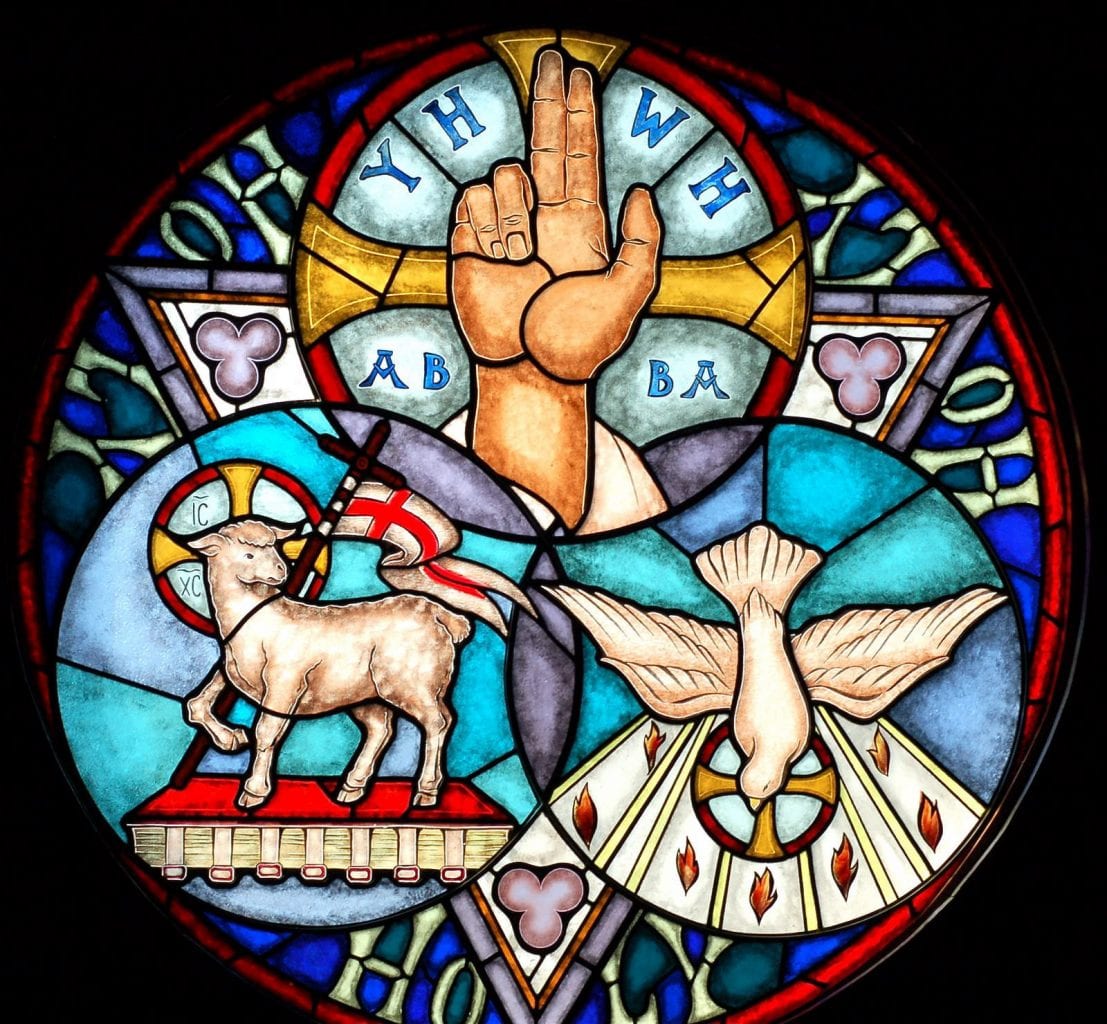Pope Leo XIV – Inaugural Mass Homily
Elected on May 8, 2025, as the 267th successor of St. Peter, Pope Leo XIV’...

T
Tertullian, On Baptism 7-8 (c. 200 AD)
“Then having gone up from the bath we are anointed with a blessed anointing of ancient discipline, by which people were accustomed to be anointed for priesthood, by oil from a horn from which Aaron was anointed by Moses [Ex 30:22-30]. For this reason we were called “christs” (“anointed ones”) from “chrism,” which is the ointment which lends its name to the Lord. It was made spiritual because the Lord was anointed with the Spirit by God the Father, as it says in Acts: ‘For they were gathered together in that city against your holy Son whom you have anointed [Acts 4:27].’ Thus also the anointing flows on us physically, but benefits spiritually, as the physical act of baptism (that we are immersed in water) has a spiritual effect (that we are free from transgressions). Next, calling and inviting the Holy Spirit, the hand is imposed for the blessing.”
Hippolytus, Apostolic Tradition 21-22 (c. 215 AD)
“The neophytes are anointed by the presbyter from the oil consecrated by the bishop. He says, ‘I anoint you with holy oil in the name of Jesus Christ.’ And thus, drying themselves, the individuals are vested, and afterwards are brought in the church.
“But the bishop, imposing his hand on them, prays by saying, ‘Lord God, who made them worthy to merit the forgiveness of sins by the bath of rebirth of the Holy Spirit, send your grace onto them, that they may serve you according to your will. For to you is the glory, to the Father and to the Son with the Holy Spirit in the Holy Church, both now and for ever. Amen.’
“Afterwards, pouring the consecrated oil from his hand and imposing it on the neophyte’s head, let him say, ‘I anoint you with holy oil in the Lord, the Father Almighty, and Christ Jesus, and the Holy Spirit.’
“And consigning the neophyte on the forehead, let him offer the kiss and say, ‘The Lord be with you.’”
Origen (d. 253 AD), Homily on Leviticus 9
“And don’t be surprised that this sanctuary is reserved for priests alone. For all whoever have been anointed with the oil of sacred chrism have become priests, as also Peter says to the whole Church: “You are a chosen people, a royal priesthood, a holy nation” (1 Pet 2:9). Therefore you are a “priestly people,” and on that account you approach holy things.”
Basil the Great, On the Holy Spirit 15, 35 (c. 375 AD)
(Basil argues that some practices come to us from traditions, not from specific writings. He illustrates with the details of the baptismal ritual.)
“We also bless the water of baptism, the oil of anointing, and even the baptized themselves. By virtue of what writings? Is it not by virtue of the protected, secret, and hidden tradition? Indeed! Even the oil of anointing, what written word has taught about that? The triple immersion, from where does it come? And everything that surrounds baptism: the renunciation of Satan and his angels–from what Scripture does that come?
“Is it not from that teaching held private and secret, which our fathers kept in silence, protected from anxiety and curiosity, knowing well that in keeping quiet one safeguards the sacred character of the mysteries? For how would it be reasonable to divulge by writing the instruction, that which is not permitted to the uninitiated to contemplate?”
Augustine, Sermon 227, 1 (c. 420 AD)
“Baptism and water have come. You have been penetrated, as it were, so that you may come to the form of bread. But it is not yet bread without fire. What therefore does fire represent? It is chrism. For the oil of our fire is the sacrament of the Holy Spirit.”
St. Leo the Great (d. 461 AD), Sermon 4. (From Nov. 10, Office of Readings, Roman Breviary):
“In baptism the sign of the cross makes kings of all who are reborn in Christ, and the anointing of the Holy Spirit consecrates them priests. So, apart from the particular obligations of our ministry, any Christian who has the gifts of rational and of spiritual understanding knows he is a member of a kingly race and shares in the priestly office.For what could be more royal than a soul which by subjecting itself to God becomes ruler of its own body? Or what more priestly when it consecrates a pure conscience to God and offers on the altar of its heart the spotless sacrifice of its devotion?”
These very incomplete collection of excerpts from several Early Church Fathers demonstrates the importance of what we now call the sacrament of confirmation (chrismation in the Eastern Christian Churches) and the conviction that this sacrament went back to apostolic times. Baptism in the early church was always followed immediately by the laying on of hands by the bishop and the anointing with the special perfumed oil called chrism which was used in the Old Testament for the consecration of priests, prophets, and kings. These excerpts also demonstrate the meaning of the sacrament of confirmation as a share in Christ’s priestly, prophetic and kingly anointing.
Click here to download and print this document, click here!
Click here to read Confirmation’s Biblical basis.
Click here to read “The Charisms of the Holy Spirit for Service”
No Comments